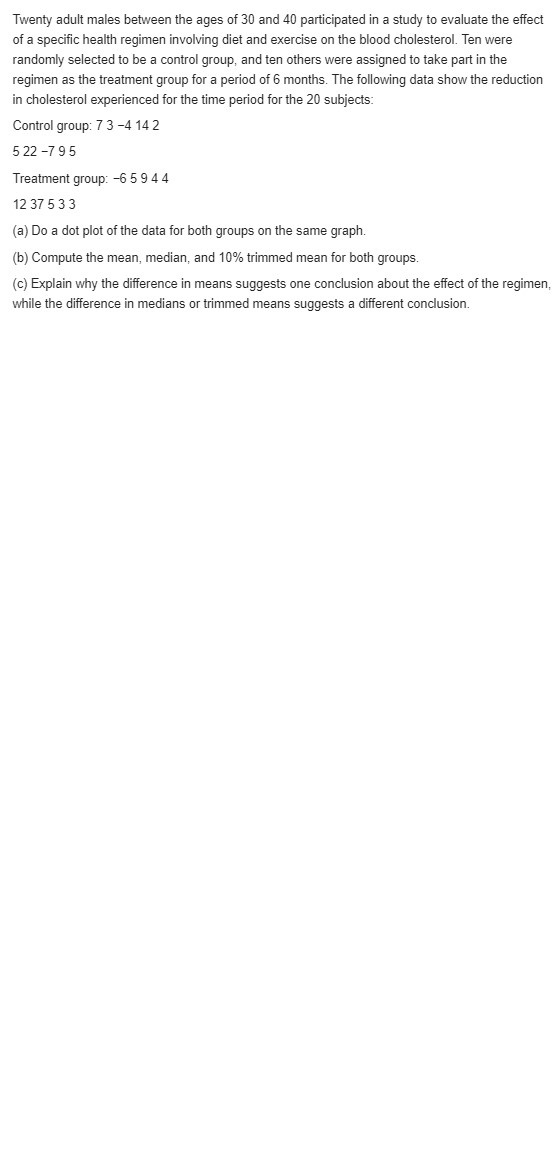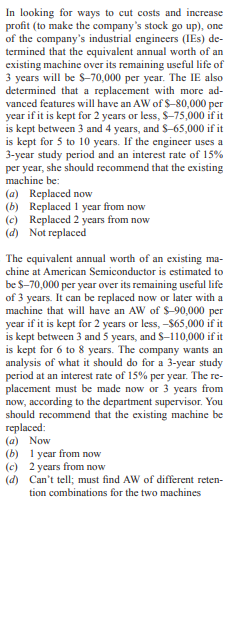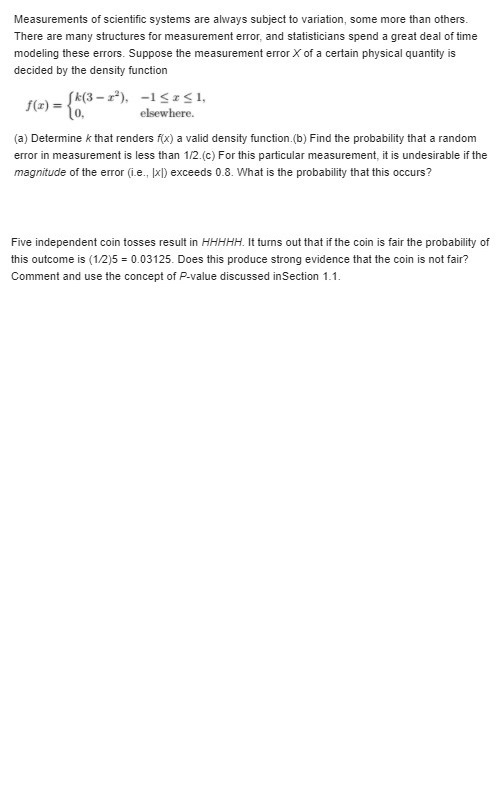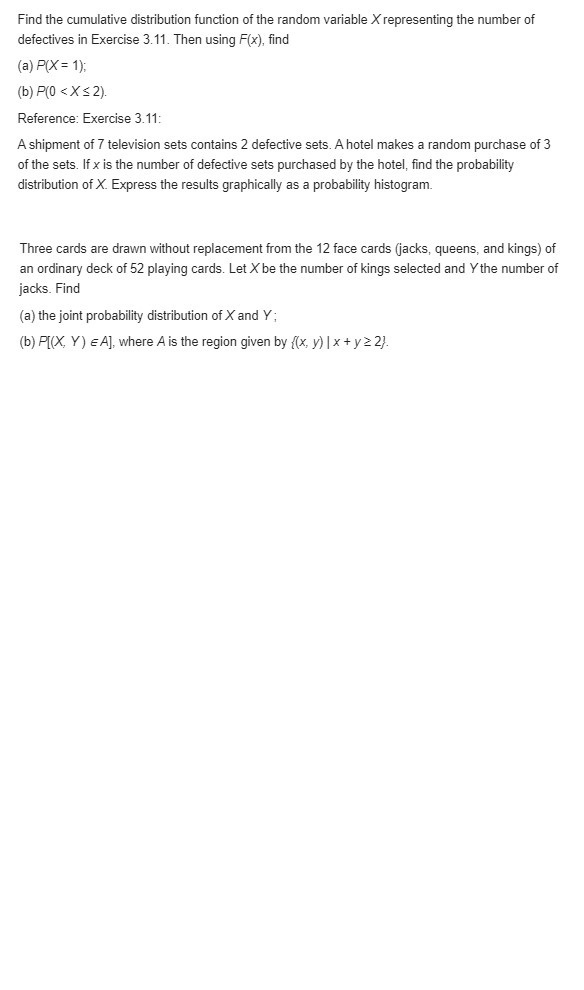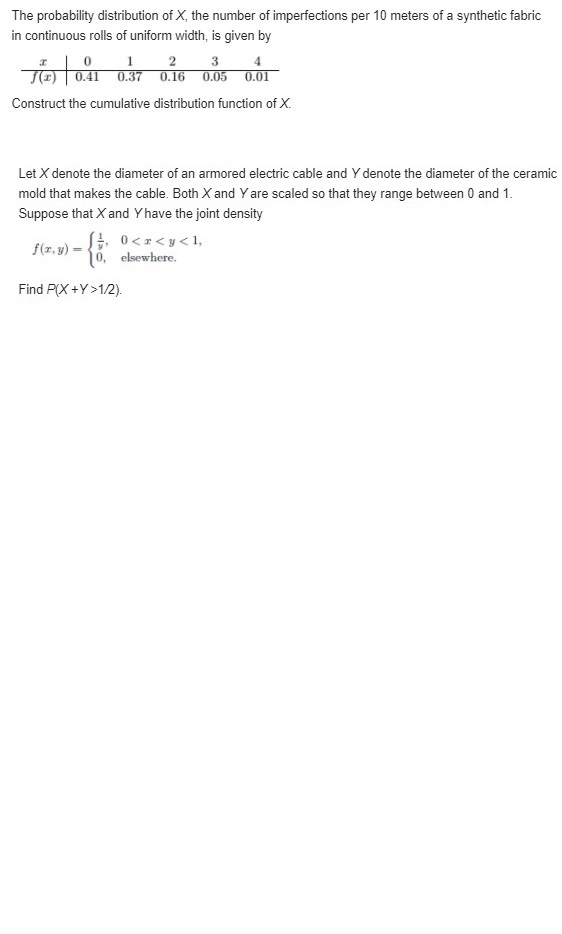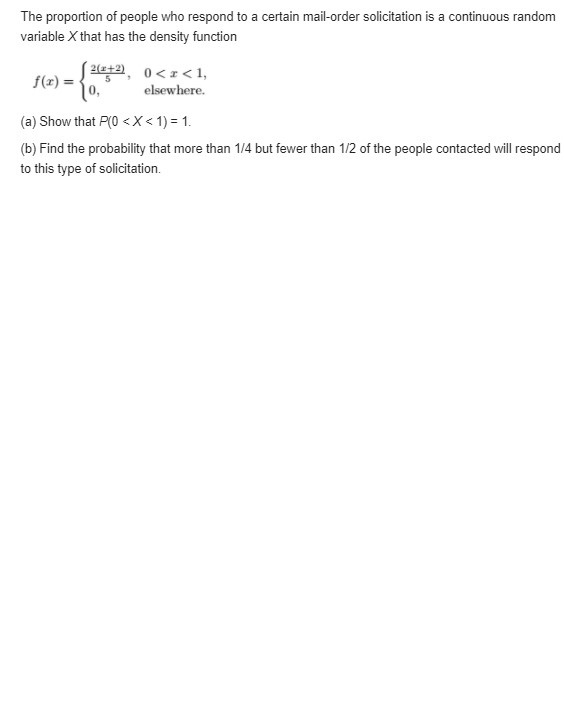solve the question
Twenty adult males between the ages of 30 and 40 participated in a study to evaluate the effect of a specific health regimen involving diet and exercise on the blood cholesterol. Ten were randomly selected to be a control group, and ten others were assigned to take part in the regimen as the treatment group for a period of 6 months. The following data show the reduction in cholesterol experienced for the time period for the 20 subjects: Control group: 7 3 -4 14 2 522 -795 Treatment group: -6 5 9 4 4 12 37 5 3 3 (a) Do a dot plot of the data for both groups on the same graph. (b) Compute the mean, median, and 10% trimmed mean for both groups. (c) Explain why the difference in means suggests one conclusion about the effect of the regimen while the difference in medians or trimmed means suggests a different conclusion.In looking for ways to cut costs and increase profit (to make the company's stock go up), one of the company's industrial engineers (IEs) de- termined that the equivalent annual worth of an existing machine over its remaining useful life of 3 years will be $-70,000 per year. The IE also determined that a replacement with more ad- vanced features will have an AW of $-80,000 per year if it is kept for 2 years or less, $-75,000 if it is kept between 3 and 4 years, and $-65,000 if it is kept for 5 to 10 years. If the engineer uses a 3-year study period and an interest rate of 15% per year, she should recommend that the existing machine be: (a) Replaced now (b) Replaced 1 year from now (c) Replaced 2 years from now (d) Not replaced The equivalent annual worth of an existing ma- chine at American Semiconductor is estimated to be $-70,000 per year over its remaining useful life of 3 years. It can be replaced now or later with a machine that will have an AW of $-90,000 per year if it is kept for 2 years or less, -$65,000 if it is kept between 3 and 5 years, and $-110,000 if it is kept for 6 to 8 years. The company wants an analysis of what it should do for a 3-year study period at an interest rate of 15% per year. The re- placement must be made now or 3 years from now, according to the department supervisor. You should recommend that the existing machine be replaced: (a) Now (b) 1 year from now (c) 2 years from now (d) Can't tell; must find AW of different reten- tion combinations for the two machinesMeasurements of scientific systems are always subject to variation, some more than others. There are many structures for measurement error, and statisticians spend a great deal of time modeling these errors. Suppose the measurement error X of a certain physical quantity is decided by the density function f(x) = [*(3-r'), -15251, elsewhere. (a) Determine * that renders f(x) a valid density function.(b) Find the probability that a random error in measurement is less than 1/2.(c) For this particular measurement, it is undesirable if the magnitude of the error (ie., (x]) exceeds 0.8. What is the probability that this occurs? Five independent coin tosses result in HHHHH. It turns out that if the coin is fair the probability of this outcome is (1/2)5 = 0.03125. Does this produce strong evidence that the coin is not fair? Comment and use the concept of P-value discussed inSection 1.1.Find the cumulative distribution function of the random variable X representing the number of defectives in Exercise 3.11. Then using F(x), find (a) P(X = 1); (b) P(0 2).The probability distribution of X, the number of imperfections per 10 meters of a synthetic fabric in continuous rolls of uniform width, is given by 1 2 3 I(x) 0.41 0.37 0.16 0.05 0.01 Construct the cumulative distribution function of X. Let X denote the diameter of an armored electric cable and Y denote the diameter of the ceramic mold that makes the cable. Both X and Y are scaled so that they range between 0 and 1. Suppose that X and Y have the joint density f (z, y) = - 0
1/2).The proportion of people who respond to a certain mail-order solicitation is a continuous random variable X that has the density function f(x) = 2(3+2) 0
